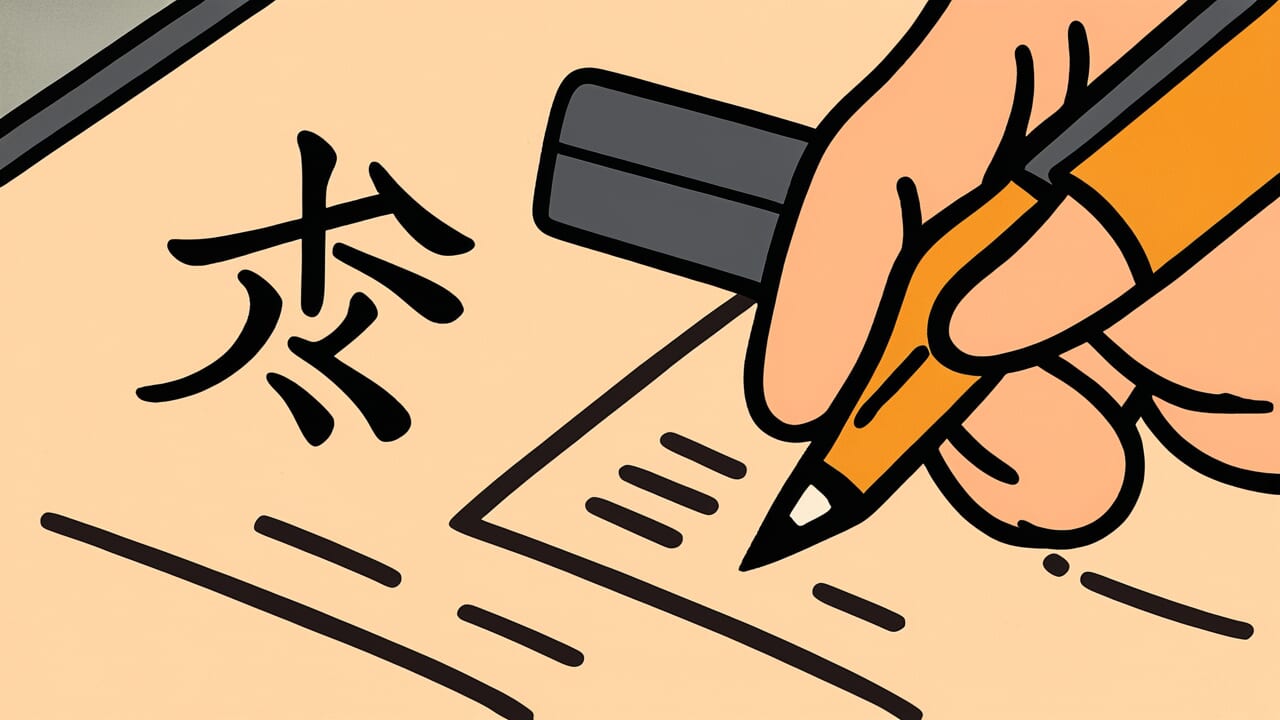How to Read “Write Chinese paper in kana”
tōshi tōshi kana de kake
Meaning of “Write Chinese paper in kana”
“Write Chinese paper in kana” teaches that even difficult content or advanced knowledge should be expressed in the simplest, clearest way possible.
When writing on fancy paper, you might want to use complex kanji characters. But this proverb says to use kana that anyone can read instead.
Through this contrast, it shows that true intelligence is the ability to make others understand.
This proverb is used when someone speaks in confusing specialist terms or complicated phrases. It reminds them to explain things more clearly.
It also serves as a warning to yourself when you’re about to use unnecessarily difficult expressions.
Even today, people widely believe that those who truly understand something can explain it simply. Anyone can communicate complex things in a complex way.
But breaking things down and matching your explanation to the listener’s level is true intelligence and kindness. This core message of the proverb remains important today.
Origin and Etymology
Clear documentary records about this proverb’s origin are limited. However, the structure of the phrase reveals an interesting background.
“Tōshi” (Chinese paper) refers to high-quality paper imported from China or beautiful paper decorated in Chinese style.
From the Heian period onward, nobles treasured this paper. They used it to write poetry and important documents.
At that time, writing on Chinese paper was proof of education. Writing in kanji characters was considered prestigious and formal.
However, this proverb deliberately says “write on Chinese paper in kana.” The contrast between expensive paper and easy-to-read kana characters is the heart of this saying.
Fancy material versus simple writing creates a memorable image about what truly matters.
During the Edo period, some scholars and educators showed off their knowledge by using difficult Chinese terms and specialist vocabulary.
Against this trend, truly excellent teachers and writers emphasized the importance of making difficult content understandable. This proverb likely emerged from that wisdom.
The contrast between “Chinese paper” with its high-class, difficult image and “kana” with its simple, friendly character makes the proverb’s lesson memorable.
It contains practical wisdom that content reaching the other person matters more than impressive formality.
Usage Examples
- I should remake this presentation with the spirit of “Write Chinese paper in kana”
- If they’re really an expert, they should follow “Write Chinese paper in kana” and explain it in words ordinary people can understand
Universal Wisdom
The proverb “Write Chinese paper in kana” captures an eternal challenge in human communication.
When people gain knowledge, they naturally want to use difficult words. This comes from a desire to show off their learning and demonstrate their authority as experts.
This proverb has been passed down for hundreds of years because our ancestors deeply understood this human tendency. They recognized the need to warn against it.
What is true intelligence? It’s not the amount of knowledge you have, but your ability to deliver that knowledge to others.
Speaking about difficult things in difficult ways is easy. But translating them into words anyone can understand requires two things.
You need deep understanding of the subject and genuine care for your listener.
This proverb reveals a truth about communication. The essence of communication isn’t self-expression but sharing understanding with others.
No matter how impressive your content is, it’s meaningless if the other person can’t understand it. Connecting hearts matters far more than format or appearance.
This fundamental principle of human relationships is embedded in this saying.
Knowledge exists not to separate people but to connect them. This universal wisdom is why this proverb is loved across generations.
When AI Hears This
Claude Shannon, founder of information theory, proved that communication success depends on “channel capacity”—the receiver’s processing ability. This proverb embodies exactly that principle.
Kanji are high-density codes. For example, two characters “憂鬱” (yūutsu) express a complex emotion. But high-density codes have a weakness.
If the receiver cannot decode them, the information transmission rate becomes zero. Kana, on the other hand, carry less information per character but almost everyone can decode them.
In other words, they have high redundancy but also high reliability as a code system.
What’s interesting is that this proverb doesn’t say “reduce the information.” It says to convert “Chinese paper”—difficult content—into the more decodable code system of “kana.”
This is the same concept as modern character encoding conversion or transcoding. You preserve the essence of information while optimizing only the expression format for the receiver.
In Shannon’s theory, error-correcting codes can increase communication reliability. The redundancy of kana writing performs exactly this error-correction function.
Even with the “noise” of varying reader knowledge levels, information arrives reliably. People in the Edo period understood this principle without mathematical formulas.
Lessons for Today
This proverb teaches modern people that true wisdom means being able to see from the other person’s perspective.
From social media to presentations to daily conversations, we communicate something to someone every day.
At those times, don’t you sometimes want to use specialist terms, foreign words, or complicated phrases to make yourself look smart?
But if the other person can’t understand, it’s no different from talking to yourself.
What matters isn’t the ability to speak about difficult things in difficult ways. It’s the power to convey difficult things in words anyone can understand.
That shows respect and kindness toward others. To truly deliver your knowledge and thoughts to the people you want to reach, have the gentleness to choose your words carefully.
Before sending that email or submitting that proposal, pause for a moment. Ask yourself: will this expression reach the other person?
Could I say this more simply? That extra effort will ensure your message reaches the other person’s heart.
Polish your words with the spirit of “Write Chinese paper in kana.”



Comments